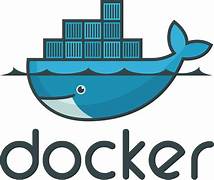Learn more about Docker ZeroMQ from our experts. Our Docker Support team is here to help you with your questions and concerns.
Docker ZeroMQ | All About
Docker ZeroMQ can be described as the integration of ZeroMQ with Docker.
ZeroMQ is a lightweight messaging library. It helps with high-performance, asynchronous communication between distributed systems, applications, and processes.
Furthermore, it offers a message-based communication model. This allows different components within a system to exchange data in a fast and efficient manner.
Additionally, it supports different messaging patterns like publish-subscribe, request-reply, and push-pull.

On the other hand, Docker is an open-source platform that allows developers to automate the deployment and management of applications within containers.
Containers are lightweight, isolated environments. They package an application’s code, dependencies, and configurations, and offer consistency and portability.
When we integrate it and ZeroMQ, it allows us to build and deploy containerized applications.
This integration enables different containers to exchange messages and data streams in a distributed system.
We can use ZeroMQ within Docker containers to help communication between microservices, enable event-driven architectures, or implement complex distributed systems.
In fact, by using ZeroMQ, developers can achieve efficient and scalable communication. Additionally, it offers the flexibility and ease of deployment provided by Docker containers.
In order to use ZeroMQ with Docker, we have to include the necessary ZeroMQ libraries and dependencies in our image. Alternatively, we can use pre-built images that already have ZeroMQ installed.
Furthermore, we have to configure our containers to establish the required ZeroMQ communication channels and endpoints.
Benefits of using Docker with ZeroMQ
Here are some of the benefits:
- Applications and their dependencies are isolated within containers. This prevents conflicts and ensures consistency.
- Containers can be easily moved between different environments. This allows us to run our application with ZeroMQ anywhere Docker is supported.
- Furthermore, we can deploy multiple instances of our application across different containers, and ZeroMQ can help these instances communicate easily.
- Additionally, Docker makes sure that our application with the configuration, runs the same way every time, regardless of the host system.
According to our experts, we can use ZeroMQ within Docker containers, by creating a Dockerfile with necessary instructions for building a container image. This involves installing ZeroMQ libraries, copying our application code into the container, and setting up the necessary runtime environment.
[Need assistance with a different issue? Our team is available 24/7.]
Conclusion
In brief, our Support Techs demonstrated how to use ZeroMQ within Docker and its many benefits.
PREVENT YOUR SERVER FROM CRASHING!
Never again lose customers to poor server speed! Let us help you.
Our server experts will monitor & maintain your server 24/7 so that it remains lightning fast and secure.




0 Comments